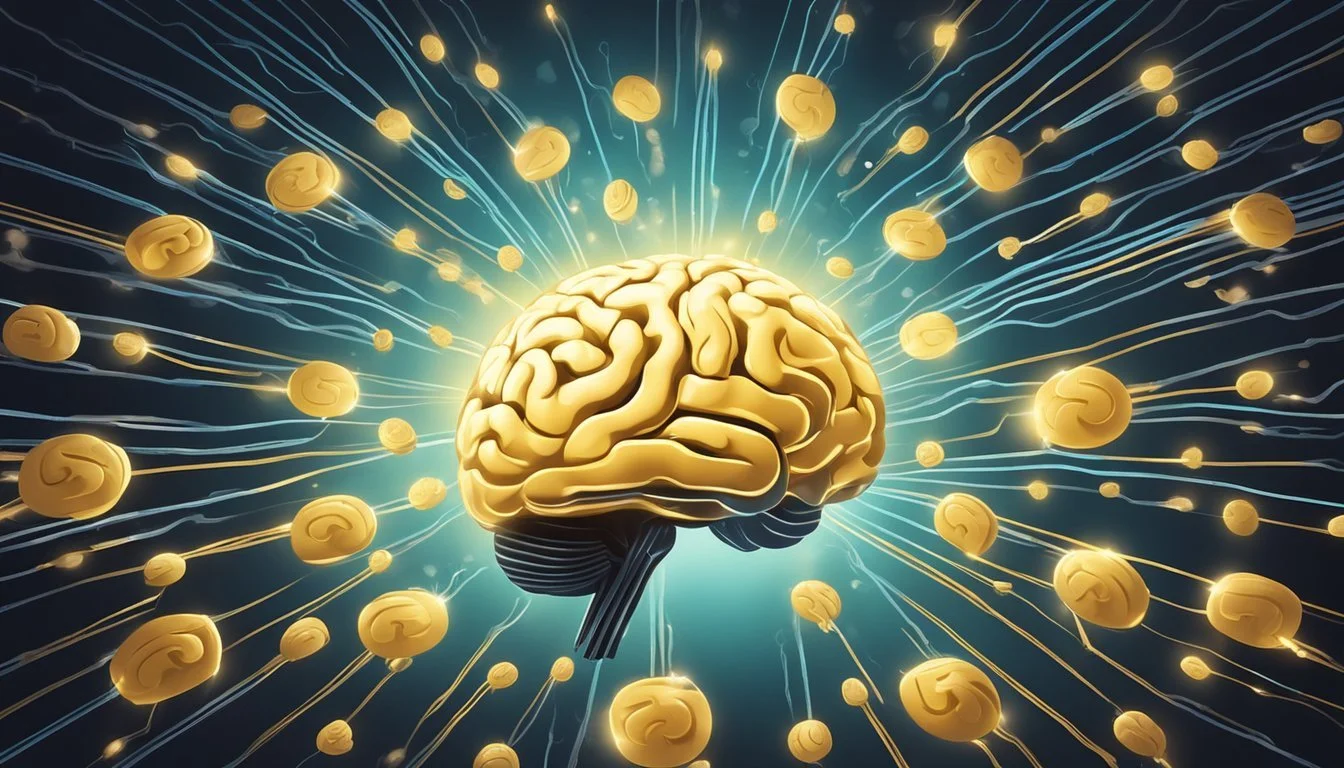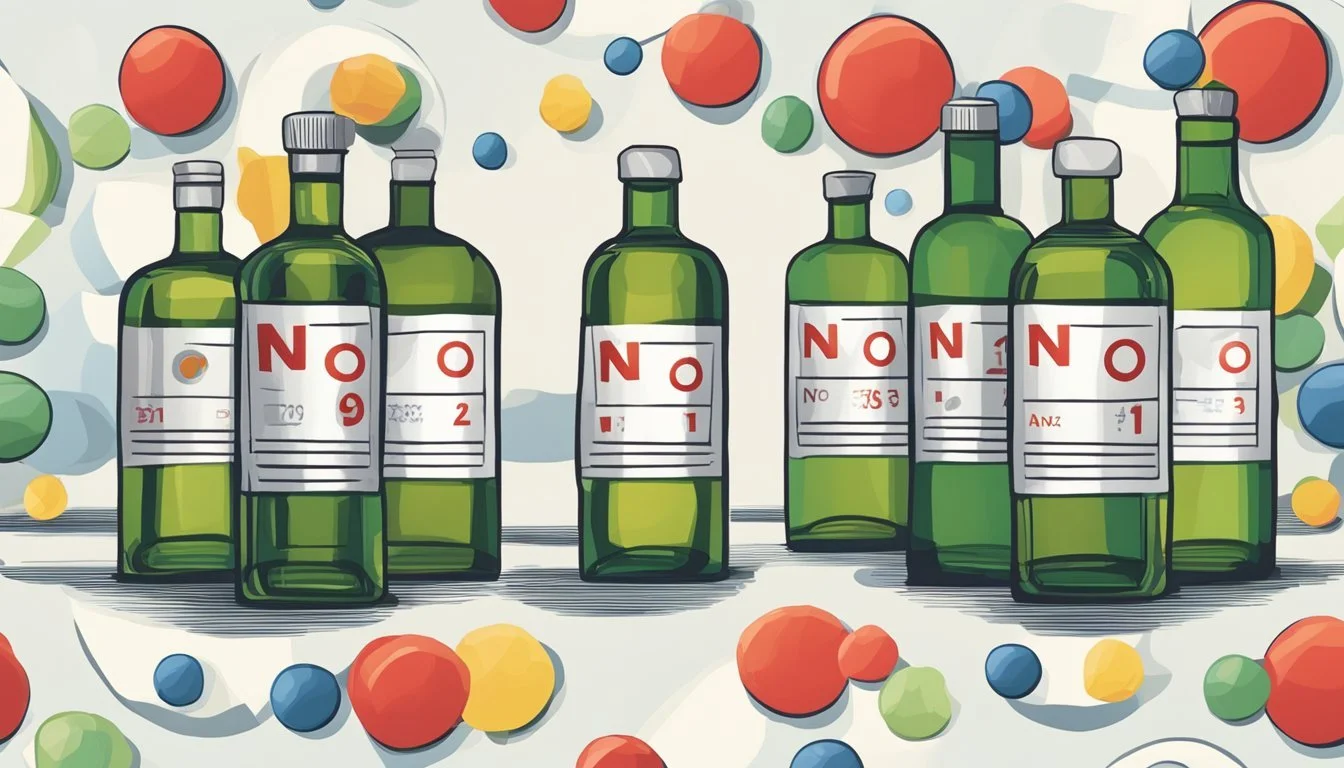13 Misconceptions About Antidepressants Addressed
Separating Fact from Fiction
Antidepressants are a common treatment for depression, but many misconceptions surround their use and effects. These medications help millions of people manage their symptoms and improve their quality of life. However, misunderstandings about antidepressants can prevent individuals from seeking or adhering to necessary treatment.
Addressing common misconceptions about antidepressants is crucial for promoting informed decisions about mental health care. This article examines 13 frequently encountered myths about antidepressant medications. By clarifying these misunderstandings, readers can gain a more accurate understanding of how antidepressants work and their role in treating depression.
1) Antidepressants change personality
Antidepressants do not fundamentally alter a person's personality. These medications primarily target brain chemicals that regulate mood and emotions.
The goal of antidepressants is to alleviate symptoms of depression, such as persistent sadness, loss of interest, and irritability. By addressing these symptoms, individuals may experience positive changes in their behavior and outlook.
Some people might feel more like themselves when taking antidepressants, as the medication helps lift the fog of depression. This can lead to increased sociability, improved concentration, and better overall functioning.
It's important to note that any perceived changes in personality are typically a result of symptom relief rather than a direct effect of the medication on one's core identity. Antidepressants aim to restore a person's natural emotional state, not create a new personality.
If someone notices significant or concerning changes while taking antidepressants, they should consult their healthcare provider. Adjustments to medication or dosage may be necessary to find the right balance for each individual.
2) Immediate mood improvements expected
Many people believe antidepressants will instantly lift their mood. This misconception can lead to frustration and disappointment when rapid changes don't occur.
In reality, antidepressants typically take several weeks to start showing effects. The timeline varies between individuals and medications, but 4-6 weeks is common before noticeable improvements.
During this initial period, some people may experience side effects before feeling benefits. This can be discouraging, but it's important to continue treatment as prescribed unless advised otherwise by a doctor.
Gradual improvements are more common than sudden mood lifts. Patients often notice small changes in sleep, appetite, or energy levels before major mood shifts.
Patience and consistency are key when starting antidepressants. Keeping a mood journal can help track subtle progress over time. Regular check-ins with healthcare providers allow for dosage adjustments if needed.
3) Only for severe depression
Antidepressants are not exclusively for severe depression. They can be prescribed for various levels of depression, including mild to moderate cases.
Many healthcare providers consider antidepressants as a treatment option for patients with different severities of depression. The decision to prescribe these medications depends on individual circumstances and symptoms.
Antidepressants may be recommended when depression significantly impacts daily functioning, relationships, or quality of life. They can also be useful for persistent depressive symptoms that don't improve with other interventions.
Some people with milder forms of depression benefit from antidepressants, especially when combined with psychotherapy. The effectiveness of these medications isn't solely determined by the severity of depression.
It's important to note that treatment plans are individualized. Healthcare providers assess each patient's specific situation to determine if antidepressants are appropriate, regardless of depression severity.
4) Addictive potential
Antidepressants are not addictive in the traditional sense of the term. Unlike substances that cause addiction, people do not develop cravings for antidepressants or engage in drug-seeking behavior to obtain them.
Antidepressants do not produce a "high" or euphoric effects that lead to misuse or abuse. They work gradually to alleviate symptoms of depression and anxiety over time.
Some people may experience discontinuation symptoms when stopping antidepressants abruptly. These effects are temporary and different from addiction. They can include dizziness, nausea, and flu-like symptoms.
To minimize discontinuation effects, doctors typically recommend gradually tapering off antidepressants under medical supervision. This allows the body to adjust to the medication change.
It's important to distinguish between physical dependence and addiction. The body may adapt to antidepressants, but this does not constitute addiction in clinical terms.
Patients should follow their doctor's guidance on antidepressant use and discontinuation. Open communication about any concerns can help ensure proper management of the medication.
5) Permanent brain changes
Antidepressants do not cause permanent structural changes to the brain. This is a common misconception that has been disproven by scientific research.
These medications work by altering neurotransmitter levels in the brain, which can affect mood and behavior. However, these changes are generally reversible once the medication is discontinued.
Some studies have shown temporary changes in brain volume while taking antidepressants. These alterations typically return to baseline after stopping treatment.
It's important to note that depression itself can cause changes in brain structure and function. Antidepressants may actually help restore normal brain activity patterns in some cases.
Long-term antidepressant use is not associated with lasting negative effects on brain structure or cognitive function. Regular monitoring by a healthcare provider can help address any concerns about medication effects.
While more research is needed on the long-term impacts of antidepressants, current evidence does not support claims of permanent brain damage from their use. Patients should discuss any worries about medication effects with their doctor.
6) No different from placebos
Antidepressants have been shown to be more effective than placebos in treating depression. Multiple large-scale studies and meta-analyses have demonstrated this difference.
A comprehensive meta-analysis published in The Lancet examined 522 trials with over 116,000 participants. The results indicated that all antidepressants were more efficacious than placebo for treating major depressive disorder.
While placebo effects can be significant in depression treatment, antidepressants provide additional benefits beyond these effects. The magnitude of symptom reduction is typically greater with antidepressants compared to placebos.
It's important to note that individual responses to antidepressants can vary. Some people may experience substantial improvements, while others might have minimal benefits.
Antidepressants also carry risks of side effects that placebos do not. This further distinguishes them from inert substances. The decision to use antidepressants should be made in consultation with a healthcare provider, considering potential benefits and risks.
7) Always cause weight gain
Antidepressants do not always lead to weight gain. While some people may experience an increase in weight, others maintain their weight or even lose weight while taking these medications.
The relationship between antidepressants and weight changes varies among individuals and depends on the specific medication. Some antidepressants are more likely to cause weight gain than others.
Certain types, such as tricyclic antidepressants and monoamine oxidase inhibitors (MAOIs), have been associated with a higher likelihood of weight gain. Selective serotonin reuptake inhibitors (SSRIs) may have varying effects on weight.
Bupropion, for example, has been linked to slight weight loss in some cases. Other medications like duloxetine and fluoxetine have shown minimal impact on weight for many users.
It's important to note that weight changes can also be influenced by factors beyond medication, including lifestyle habits and the effects of depression itself. Some individuals may experience changes in appetite or activity levels as their mental health improves.
Healthcare providers can work with patients to monitor weight changes and adjust treatment plans if necessary. Alternative medications or strategies can be explored if weight gain becomes a significant concern.
8) Incompatible with alcohol
Antidepressants and alcohol are not entirely incompatible, but their combination requires caution. Many people believe they can never drink while taking antidepressants, but this is not always true.
The interaction between antidepressants and alcohol varies depending on the specific medication. Some antidepressants may have more severe interactions with alcohol than others.
Drinking alcohol while on antidepressants can potentially increase side effects such as drowsiness, dizziness, and impaired coordination. This combination may also reduce the effectiveness of the antidepressant medication.
Alcohol can worsen symptoms of depression, counteracting the benefits of antidepressants. It may also increase the risk of suicidal thoughts or behaviors in some individuals.
Moderate alcohol consumption might be permissible for some people taking certain antidepressants, but this decision should always be made in consultation with a healthcare provider.
It's crucial to discuss alcohol use with a doctor when prescribed antidepressants. They can provide personalized advice based on the specific medication, dosage, and individual health factors.
9) Quick-fix solution
Antidepressants are not a quick-fix solution for depression or other mental health conditions. They require time to take effect, typically 4-6 weeks before significant improvements are noticed.
Patients should not expect immediate relief from their symptoms upon starting antidepressant medication. The process of finding the right medication and dosage can take several months.
Antidepressants work best when combined with other forms of treatment, such as psychotherapy. They are not a standalone cure but rather a tool to help manage symptoms and support recovery.
It's important for individuals to maintain realistic expectations about antidepressants. These medications can be effective in treating depression, but they are not magical pills that instantly solve all problems.
Consistent use and patience are key when taking antidepressants. Stopping medication prematurely or expecting rapid results can lead to disappointment and potentially worsen symptoms.
10) Ineffective in teens
The effectiveness of antidepressants in treating teen depression has been a subject of debate. Research suggests that some antidepressants may have limited efficacy for adolescents compared to adults.
Studies have shown that fluoxetine (Prozac) is one of the few antidepressants that consistently demonstrates effectiveness in treating depression in teenagers. Other commonly prescribed medications may not show significant benefits over placebos.
It's important to note that medication alone is often not sufficient for treating teen depression. A comprehensive approach combining psychotherapy, lifestyle changes, and possibly medication under close medical supervision is typically recommended.
The response to antidepressants can vary greatly among individuals. What works for one teen may not be effective for another, highlighting the importance of personalized treatment plans.
Parents and healthcare providers should carefully weigh the potential benefits and risks of antidepressant use in teenagers. Regular monitoring and open communication are crucial when adolescents are prescribed these medications.
11) Dangerous long-term use
Long-term use of antidepressants has been a topic of ongoing research and discussion in the medical community. Recent studies have raised some concerns about potential risks associated with extended use of these medications.
One study found that long-term antidepressant use may be linked to an increased risk of heart disease. The research, conducted by the University of Bristol, analyzed data from over 200,000 people and suggested that prolonged use might double the risk of cardiovascular issues.
It's important to note that the benefits of antidepressants often outweigh the potential risks for many individuals. These medications can be life-changing for those struggling with depression and anxiety disorders.
Side effects from long-term use can vary among individuals. Some people may experience emotional numbness, sexual problems, or weight gain. Others might notice reduced positive feelings or, in rare cases, suicidal thoughts.
Healthcare providers carefully consider the risks and benefits when prescribing antidepressants for extended periods. Regular check-ups and open communication with a doctor are crucial for monitoring any potential long-term effects.
12) Natural alternatives superior
Some people believe natural alternatives are inherently superior to antidepressant medications. This misconception often stems from the idea that "natural" equals "safe" or "better."
In reality, both natural remedies and antidepressants have potential benefits and drawbacks. Natural approaches like exercise, meditation, and dietary changes can be effective for mild depression in some individuals.
However, for moderate to severe depression, antidepressants may be necessary and more effective. Many antidepressants are derived from natural compounds found in plants.
The efficacy of natural alternatives varies widely between individuals. What works for one person may not work for another. Some natural remedies can also have side effects or interact with other medications.
It's important to consult a healthcare professional before starting any treatment for depression. They can help determine the most appropriate approach based on individual circumstances and severity of symptoms.
Both natural alternatives and antidepressants have their place in treating depression. The best choice depends on the specific situation and needs of each person.
13) Escaping reality method
Antidepressants are sometimes mistakenly viewed as a way to escape reality. This misconception stems from a misunderstanding of how these medications work and their intended purpose.
Antidepressants are not designed to alter a person's perception of reality or provide an artificial sense of happiness. Instead, they aim to correct chemical imbalances in the brain that contribute to depressive symptoms.
The goal of antidepressant treatment is to help individuals regain their ability to function and engage with life more effectively. These medications can alleviate symptoms such as persistent sadness, loss of interest, and fatigue.
By reducing the severity of depressive symptoms, antidepressants can actually help people face reality more clearly and cope with life's challenges. They do not create a false sense of well-being or shield individuals from real-world problems.
It's important to note that antidepressants are most effective when combined with therapy and lifestyle changes. They are a tool to support recovery, not a means of avoiding life's difficulties.
Understanding Antidepressants
Antidepressants are medications designed to alleviate symptoms of depression and other mood disorders. These drugs work by affecting neurotransmitters in the brain, helping to restore chemical balance and improve mental health.
How Antidepressants Work
Antidepressants primarily target neurotransmitters like serotonin, norepinephrine, and dopamine. They increase the availability of these chemicals in the brain, which can help regulate mood, emotions, and behavior.
The exact mechanism varies by drug type. Some antidepressants block the reuptake of neurotransmitters, while others inhibit their breakdown.
It's important to note that antidepressants are not "happy pills." They don't create artificial happiness or change one's personality. Instead, they help restore normal mood function in individuals with depression.
Antidepressants typically take 2-4 weeks to show noticeable effects. Patients often need to try different medications or dosages to find the most effective treatment.
Types of Antidepressants
Several classes of antidepressants are available, each with unique characteristics:
Selective Serotonin Reuptake Inhibitors (SSRIs):
Most commonly prescribed
Examples: fluoxetine, sertraline, paroxetine
Serotonin-Norepinephrine Reuptake Inhibitors (SNRIs):
Target both serotonin and norepinephrine
Examples: venlafaxine, duloxetine
Tricyclic Antidepressants (TCAs):
Older class of drugs
Examples: amitriptyline, nortriptyline
Monoamine Oxidase Inhibitors (MAOIs):
Less commonly used due to dietary restrictions
Examples: phenelzine, tranylcypromine
Atypical Antidepressants:
Newer drugs with varied mechanisms
Examples: bupropion, mirtazapine
Each type has its own benefits and potential side effects. The choice of antidepressant depends on individual symptoms, medical history, and potential drug interactions.
Addressing Common Misconceptions
Antidepressants are widely prescribed medications, yet they are often misunderstood. Clarifying these misconceptions can help patients make informed decisions about their mental health treatment.
Addiction Potential
Antidepressants are not addictive in the traditional sense. They do not cause cravings or compulsive drug-seeking behavior. Some people may experience discontinuation symptoms when stopping antidepressants abruptly, but this is different from addiction.
These symptoms can include dizziness, nausea, and flu-like feelings. They are typically mild and resolve within a few weeks. To minimize discontinuation effects, doctors often recommend gradually tapering off the medication under medical supervision.
It's important to distinguish between physical dependence and addiction. While the body may adjust to antidepressants, this does not indicate addiction.
Effectiveness for Everyone
Antidepressants are not a one-size-fits-all solution. Their effectiveness can vary significantly from person to person. Some individuals experience substantial improvement in their symptoms, while others may see little to no benefit.
Factors influencing effectiveness include the specific type of depression, individual brain chemistry, and lifestyle factors. Finding the right medication often involves a process of trial and error.
It's crucial for patients to work closely with their healthcare providers to monitor progress and adjust treatment as needed. Some may require a combination of medications or additional therapies like cognitive-behavioral therapy for optimal results.
Patience is key, as antidepressants typically take several weeks to show full effects.
Impact on Personality
A common fear is that antidepressants will fundamentally change one's personality. This concern is largely unfounded. Antidepressants aim to alleviate symptoms of depression, not alter core personality traits.
Effective treatment should help individuals feel more like themselves, not less. Patients often report feeling more energetic, sociable, and emotionally stable - closer to their true selves without the burden of depression.
Any perceived personality changes are typically positive and related to the lifting of depressive symptoms. If a patient feels their medication is causing unwanted changes, they should discuss this with their doctor.
It's important to note that antidepressants do not create artificial happiness or numb emotions. They work to restore emotional balance.
Considering Alternatives and Adjuncts
Antidepressants are not the only option for treating depression. Non-medication therapies and supplemental treatments can be effective alternatives or adjuncts to pharmaceutical approaches.
Non-Medication Therapies
Psychotherapy is a primary non-medication treatment for depression. Cognitive Behavioral Therapy (CBT) helps patients identify and change negative thought patterns. It typically involves 12-20 weekly sessions with a trained therapist.
Interpersonal therapy focuses on improving relationships and communication skills. This approach can be particularly helpful for those whose depression stems from social or interpersonal issues.
Exercise has shown promise in alleviating depressive symptoms. Regular physical activity can boost mood, reduce stress, and improve overall well-being. Even moderate exercise, like a 30-minute daily walk, can have positive effects.
Mindfulness meditation and relaxation techniques can help manage stress and negative emotions. These practices can be learned through classes, apps, or guided sessions.
Supplemental Treatments
Transcranial Magnetic Stimulation (TMS) is a non-invasive procedure that uses magnetic fields to stimulate specific areas of the brain. It's often considered for patients who haven't responded well to antidepressants.
Light therapy, using specially designed light boxes, can be effective for seasonal affective disorder and some types of depression. Sessions typically last 20-30 minutes daily.
Herbal supplements like St. John's Wort have shown some effectiveness in mild to moderate depression. However, they can interact with other medications and should be discussed with a healthcare provider.
Acupuncture, an ancient Chinese practice, may help some individuals with depression. Research on its effectiveness is ongoing, but some patients report improved mood and reduced anxiety.









